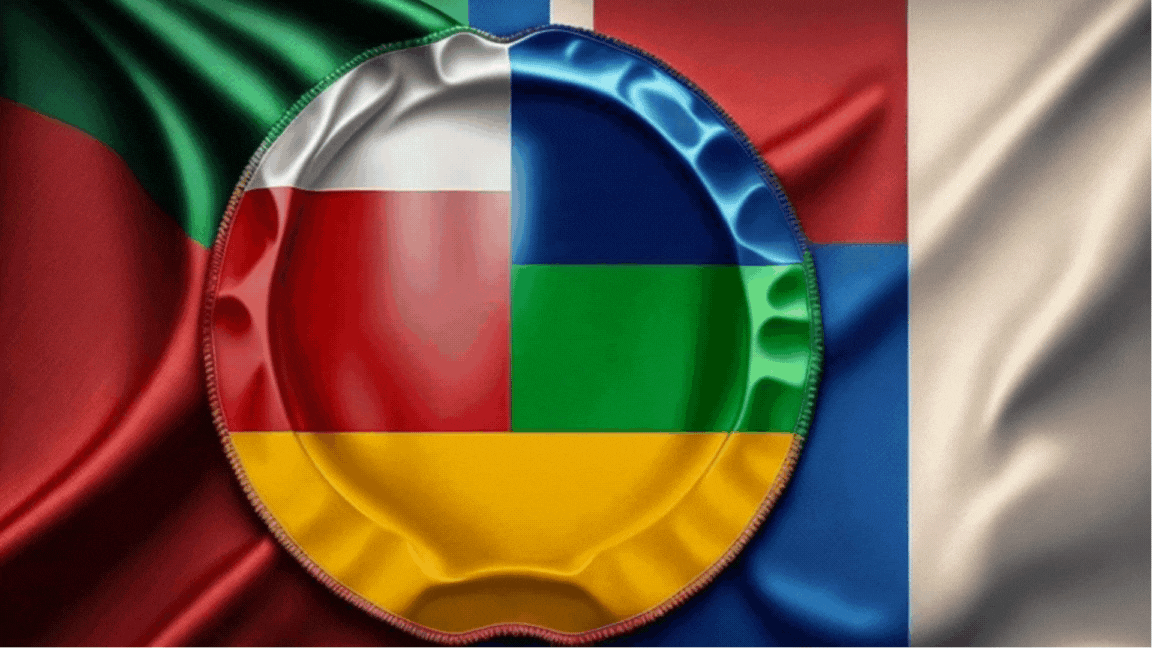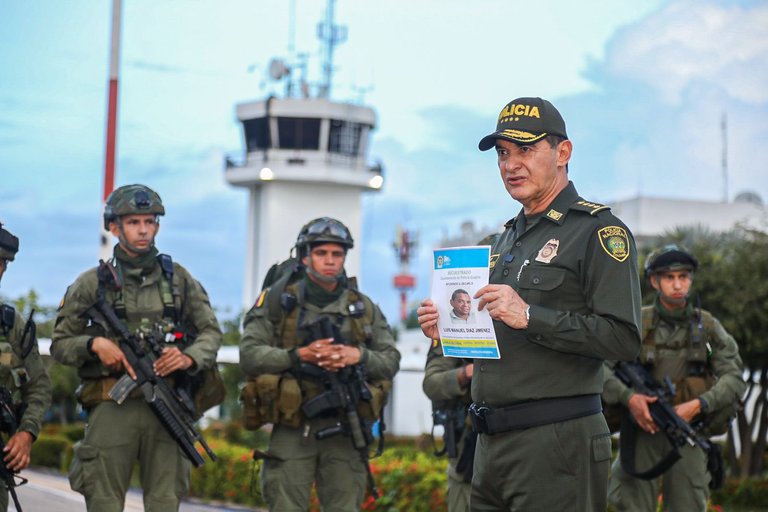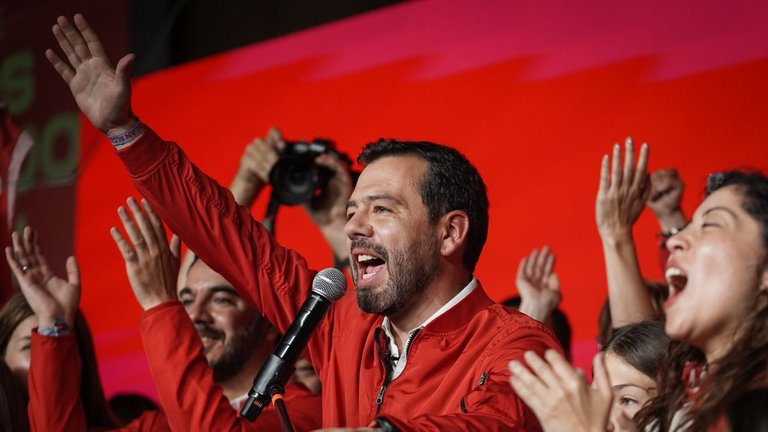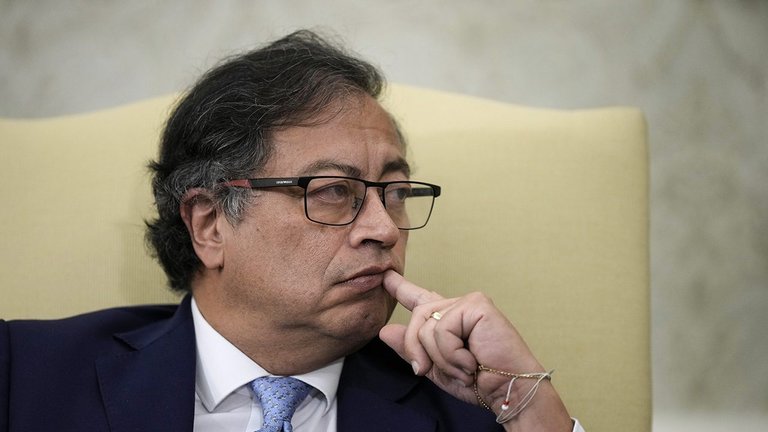The Latin American Report # 107

Edited with Canva.
Real-life movie [a bad one]
In Latin America, a presidential candidate is killed in the middle of the street. Months later, the six assassins who survived the deadly attack—the one who pulled the trigger died on the spot—were found hanged in jail. Here criminals are the real power in certain rural and urban areas in several countries. In prisons, the inmates accumulate such firepower that thousands of heavily armored troops are needed to enter them.
In all this, kidnapping is not news, but if the victim is the father of a soccer player who plays in the city of the Beatles, then we are talking about something else. Luis Díaz, a native of Barrancas, could not play for Liverpool yesterday because his father was kidnapped in Colombia. His mother was with him too but was released shortly after in circumstances that have not yet been clarified. The authorities of the coffee-growing country are trying to block every inch of the border with Venezuela to prevent the transfer there of Mr. Manuel Diaz, approached while he was at a gas station. The kidnappers have made no demands, nor has the group to which they belong been identified.

Colombian striker Luis Díaz prestige us in European soccer (source of the image).
I would not even rule out the possibility that it was an isolated incident where the perpetrators randomly targeted them, but then it happened that they were the fathers of a famous soccer player. In such a case, it could be an opportunity to make money, or on the contrary an unintentional exposure for the kidnappers. I repeat, unfortunately, kidnapping is not news in the northwestern part of South America. Just yesterday the Ecuadorian police released an individual who had been kidnapped last week, and for whose return $75,000 was being demanded (social anomie alert: one of the alleged kidnappers is only 21 years old, and already had a record for murder).
Back to what is happening, President Gustavo Petro has been directly involved in tackling a situation that exposes the insecurity situation in the country. Approximately 240 police and military personnel participate in the search for Mr. Diaz, using motorized platoons, drones, helicopters, a plane with specialized radar, among other material and human resources. A little more than $48,400 are available to reward anyone who provides valid information on the victim's whereabouts. The Attorney General, who maintains a political pugilate with Petro, threw a dart at the latter given the possibility that the kidnappers may manage to pass to Venezuela, in a clear allusion to the positive relationship that exists between the House of Nariño and the Miraflores Palace; this because of the disputed Venezuelan leadership.

A heavy deployment of police with Army support is underway to rescue Mr. Manuel Diaz (source of the image).
Elections
All this human drama has marred a day of local and regional elections that came amid deadly violence in the campaign. A woman, a mother, died the day before at the office that coordinates the suffrage in a town in the department of Cesar, when a group of people set fire to it in protest against a decision that brought criticism from President Petro himself for its questionable timing. Two other female officials were reported in critical condition as a result of the citizen's reaction.
The risk of violence was "extreme" in a representative number of municipalities, denounced the Ombudsman's Office. Speaking about this institution, which in general—where it exists—is in charge of defending, promoting, and protecting the human rights of citizens against illegalities and arbitrariness of public or private actors, sometimes it seems to me a surplus entity. It ends up being sterile as it can't effectively guarantee the protection of anyone. Colombia is a clear example.
The day was intended to be a sort of referendum to measure how well Colombians agree with Petro's administration. If we go along that line, then we can understand that it is not going well, because his political formation lost all the strategic battles it had this Sunday. In the capital, Medellin, and Cali, the elected mayors are in the antipodes of Petro and his Historic Pact. He also conceded in critical cities such as Barranquilla and Bucaramanga, and also lost the possibility of governing, in general, the states of Antioquia, Atlántico, and Santander.

The defeat in Bogotá of his candidate is very painful for Petro. Carlos Fernando Galán, labeled as a moderate, won without needing a second round (source of the image).
So yes, it has undoubtedly been a harsh setback for the first leftist president in Colombian history. But despite his mistakes and the accusations of the financing of his electoral campaign, it has been clear the entrenchment and then the offensive from powerful actors including the media. For example, when I read this chronicle of the popular digital publication SEMANA, the anti-Petro smell comes out. It is almost cruel, it sinks the dagger as much as it can in a wounded animal—the president today—, and uncritically praises any option that has defeated him throughout the country.
The citizenry has been permeable to all that media fire. It can't be forgotten that Petro received an economically weak country, not to mention the cancer of corruption, and the unfortunate practical empire of organized crime and guerrillas. To demand results when he is the subject of a well-organized offensive, with no muscle in Congress to advance the policies he promised, and with little more than a year in the House of Nariño, seems to me to be a flawed practice.

Petro has a difficult time given the dwindling popular support for his political project (source of the image).
I appreciated a lot of flagrant demagogy in the discourse of those who have won today, with their promises to solve the problem of insecurity, for example, but I hope I am wrong for the benefit of the Colombian people. There were not few cases of attempted electoral fraud detected by the authorities, with a mayor arrested in possession of 37,000 dollars early Sunday.
Your quick regional roundup
In México, nearly 50 people died in the aftermath of Hurricane Otis, as authorities updated the figure yesterday. Most of them lost their lives in Acapulco, a famous tourist destination where material and human consequences are regrettable. More deaths could be confirmed today as six people remained missing on Sunday. More than 273,800 homes were affected, while 40% of homes were without electricity service. Eighty percent of the hotel infrastructure was damaged to some degree, and the impact on sanitation facilities is also significant.
Meanwhile, in Panamá, protests against a contract signed by the government with a Canadian mining company continue to set the political agenda. The concession allows to continue exploiting the largest copper deposit in Central America, to which several social sectors are opposed because they consider the agreement as "unconstitutional", with some reservations as well on environmental grounds. Yesterday, dozens of motorists made noise with their engines, including choreography, to join the uninterrupted demonstrations. Around 570 people have been arrested during these intense days, including more than 90 minors. The police report the vandalization of more than 50 businesses and about 40 government cars, among other damages to property and to the physical integrity of law enforcement officers.
And this is all for our one-hundred-seventh report. I have referenced the sources dynamically in the text, and remember you can learn how and where to follow the LATAM trail news by reading my work here. Have a nice day.

Edited with Canva.

Thank you for once again proving how much I really don't want to go to South America!
I think I like peace and quiet here in the United States! Our crime problems are nowhere near this bad...
I agree that the problems we have here are nothing like those in the United States. The sad thing is that nothing points to improvement; the region is in crisis and then it rebounds in the high rates of illegal immigration. Thanks for your strong support and feedback on my work here.
No no no no no no no...
The problem is in the United States are nowhere near is bad as wat happens in South and Central America...
The United States is actually an extremely peaceful place in comparison.
Fully agree with you, maybe I was not as clear as I wanted to be.
Lol yes yes yes yes!
Lol I have rock.and I'm going to fight over that I think rock is awesome. And people that don't think my rock is as nice are bad... Lol
Anyways. Have a great day. Awesome post again! I can't wait to keep seeing what you are doing!